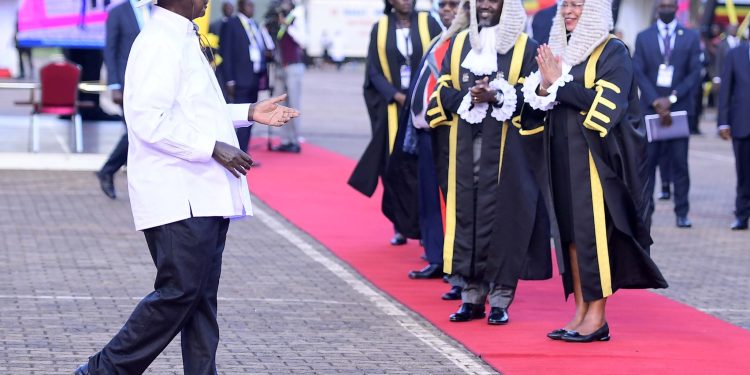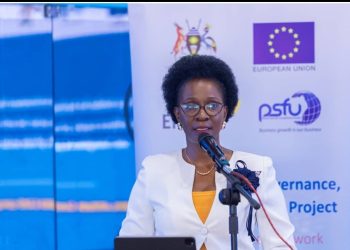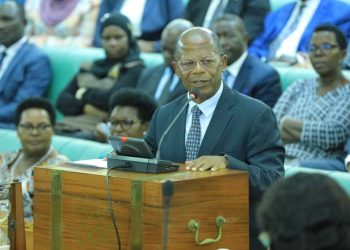President Museveni delivered his State-of-the-Nation (SONA) speech at Kololo Independence Grounds, highlighting the positive outlook for Uganda’s economy and dismissing calls for fuel subsidies.
The president expressed confidence that Uganda’s economy would reach the $55 billion mark within a year, projecting a real-term growth rate of 5.5 percent for the current year. He also emphasized the potential for even faster growth.
While President Museveni focused on the country’s economic prospects, he did not directly address the rising cost of living, which has become a concern for ordinary citizens. Some individuals were disappointed that the speech did not address the issue of corruption, which reportedly costs Uganda over Shs9 trillion annually.
The president attributed the resilience of Uganda’s economy to increased investment in manufacturing, poverty alleviation initiatives such as the Parish Development Model and Emyooga, support for small and medium enterprises, growth in the oil and gas sector, and expansion of regional trade.
President Museveni projected that Uganda’s GDP would reach Shs.207.22 trillion ($55.17 billion) by the end of the 2023/24 financial year, translating to a GDP per capita of $1,186.
He acknowledged that inflation had been controlled but mentioned that high food prices persisted due to climate change effects, which caused prolonged droughts in various regions.
The government’s ongoing investment in small-scale solar-powered irrigation was expected to alleviate water shortages and reduce food prices.
Regarding fuel subsidies, the president reiterated his opposition, citing their unsustainability and potential to introduce distortions into the economy. He argued against subsidizing consumption, such as subsidizing petrol for people to drive to nightclubs.
Some individuals had hoped for fuel relief as prices had nearly doubled since the pre-Covid rates.
Although some opposition members and traders called for fuel subsidies, others supported the president’s stance, pointing out the negative consequences experienced in countries like Kenya when subsidies were introduced. Instead of subsidies, some suggested reducing taxes on fuel.
President Museveni indicated that the only potential subsidy under consideration would be for agricultural inputs. The government was studying the issue and aimed to allow market forces to determine prices while incentivizing production.
However, the president highlighted the need to address interference with fertilizer prices from external sources or consider subsidies in that specific case.
In his address, the president assured the nation of enhanced security measures and addressed recent incidents of killings by soldiers and policemen, assuring immediate responses to such situations.
He also highlighted efforts to combat cattle theft in the Karamoja sub-region, which resulted in the recovery of stolen livestock and firearms.
President Museveni recognized tourism as a sector that could transform Uganda’s economy if properly developed. Since the lifting of the lockdown, tourist numbers had exceeded pre-Covid figures, with significant contributions to employment and GDP. The government aimed to maintain security at tourism sites to maximize the sector’s potential.
Infrastructure development remained a priority, with ongoing road upgrades and rehabilitation projects. The president emphasized the upcoming construction of the Standard Gauge Railway, beginning with the Malaba-Tororo-Kampala leg in the new financial year.
He also stressed the need to increase and diversify energy sources, including nuclear energy, to support industrialization, oil and gas production, and tourism. The president set an ambitious target of achieving a total generation capacity of 52,000 MW within the next 17 years.

































































